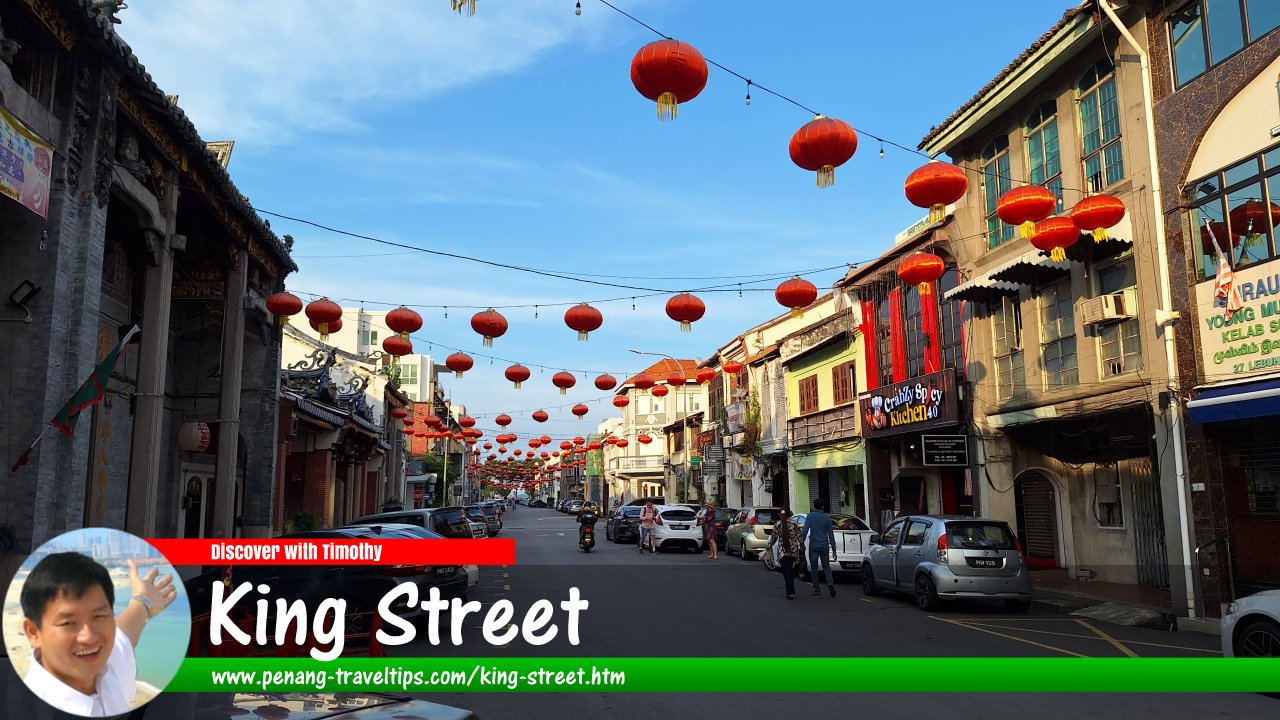 King Street, George Town, Penang (31 January 2024)
King Street, George Town, Penang (31 January 2024)
King Street, also known today as Lebuh King, is a street within the historic core of George Town Unesco World Heritage Site. Today it is a one-way street with traffic flowing from Chulia Street to Light Street. King Street dates to the late 18th century, and was already in the original grid laid out by Francis Light. In the earliest days, the street leads from Light Street, which was reserved for Europeans, towards land parcelled out to the Chinese community. By the mid-19th century and into the 20th, as Europeans moved away into the suburbs, wealthy Chinese began to buy up the real estate all the way until Light Street itself.
The Hokkiens in Penang call King Street by different names, depending on its location. The section from Light Street to Bishop Street was called Kau1 Keng3 Chu1 Au33, meaning "the back of the nine townhouses". This name refers to nine terrace houses with their front towards Penang Street and their back to King Street. They were the favored addresses of the Chinese nouveau riche.
The section of King Street between Bishop Street and China Street was the heart of the Cantonese community in 19th century George Town. A number of Cantonese district associations and temples are located here. The Hokkiens called it the Kin1 Tang3 Tua3 Pek1 Kong3 Kay1, in reference to the Cantonese Tua Pek Kong Temple located there.
The section of King Street between China Street and Market Street was called Ku Ho Seng Kongsi Kay, meaning "Former Ho Seng Association Street", because the Ho Seng Secret Society used to have its base at 53 King Street, next to Poe Choo Seah.
From Market Street to Chulia Street, King Street enters the Little India part of George Town. In the 19th century, this section was inhabited by the South Indians who were dock workers at the Penang harbour. Understandably, the Hokkiens called this section Kelinga Kay, or "Southern Indian Street". The Tamil name for King Street is Padahukara Teru, meaning "boatmen's street".1.
 Map of King Street, Penang
Map of King Street, Penang
Street Art
- "Roti Benggali" Sculpture, Nagore Shrine (GPS: 5.41728, 100.33947)

- "Untrained Parakeet" Sculpture (GPS: 5.41782, 100.33985)

 Sights along King Street
Sights along King Street
- Cantonese Tua Pek Kong Temple (GPS: 5.41841, 100.34007)

- Chin Si Thoong Soo (GPS: 5.41753, 100.33943)

- Chong San Wooi Koon/Heong San Hoay Kuan (GPS: 5.41855, 100.34015)

- Kar Yin Fee Kuan (GPS: 5.41881, 100.34029)

- Koo Saing Wooi Koon (GPS: 5.41689, 100.33926)

- Lee Sih Chong Soo (GPS: 5.41811, 100.34009)

- Nagore Shrine (GPS: 5.4163, 100.33888)

- Ng Kongsi (GPS: 5.4182, 100.3399)

- Nin Yong Temple (GPS: 5.41827, 100.33996)

- Poe Choo Seah (GPS: 5.41751, 100.33967)

- Tseng Lung Fui Kon (GPS: 5.41889, 100.34038)

 Coffee Shops and other Eateries on King Street
Coffee Shops and other Eateries on King Street
- Hainanese Delights Restaurant (GPS: 5.4182, 100.33989)

- Kedai Makan & Minum Sin Hoe Peng (GPS: 5.41959, 100.34107)

Commercial Buildings on King Street
- Wisma Great Eastern (GPS: 5.41978, 100.34081)

 Businesses on King Street
Businesses on King Street
Getting there
Take the Free Rapid Penang Shuttle Bus to Bus Stop No. 5 (Bank Negara) and walk a short distance down Light Street to King Street.Property Numbering
Starting from Light Street and heading towards Chulia Street, note that properties on the left side of King Street have odd-number addresses while those on the right side have even-number addresses. King Street, George Town (11 February 2013)
King Street, George Town (11 February 2013)
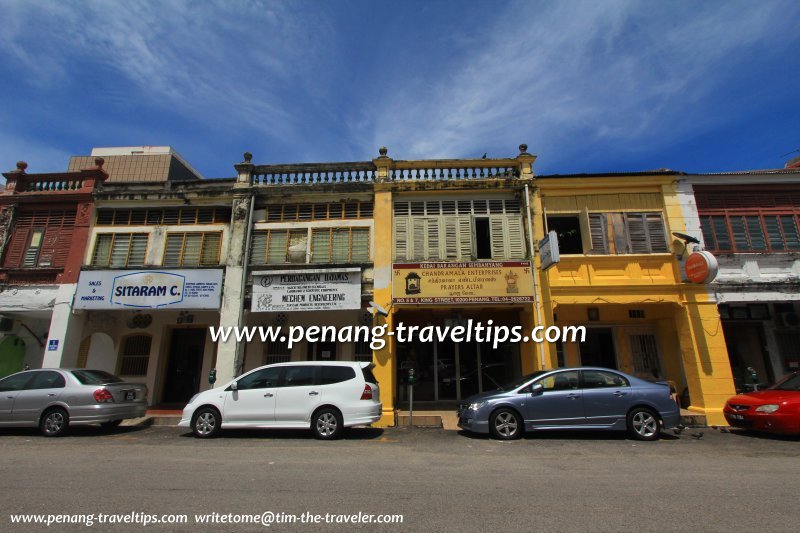 King Street, Penang (25 July 2012)
King Street, Penang (25 July 2012)
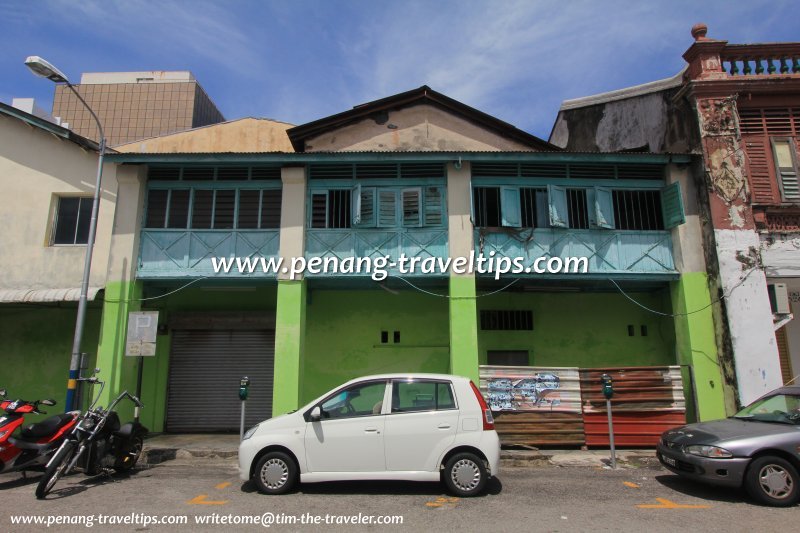 Anglo-Indian-style building, King Street (25 July 2012)
Anglo-Indian-style building, King Street (25 July 2012)
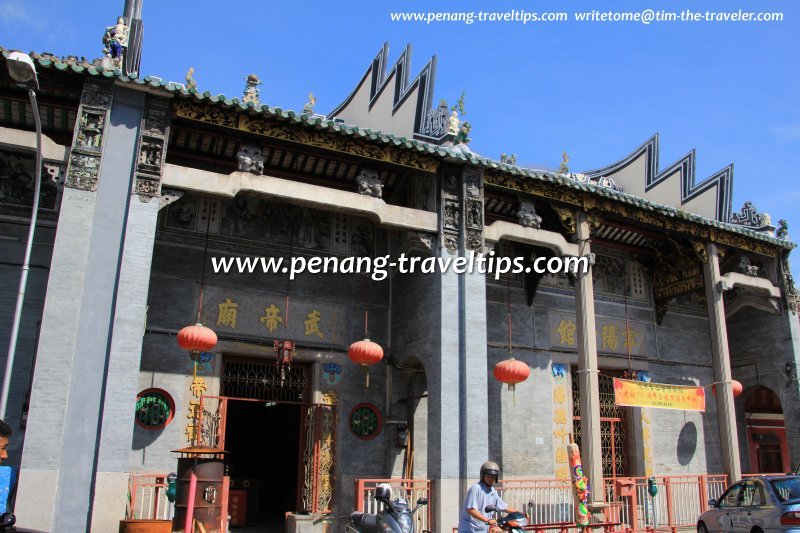 King Street's Cantonese-style temples (15 September 2012)
King Street's Cantonese-style temples (15 September 2012)
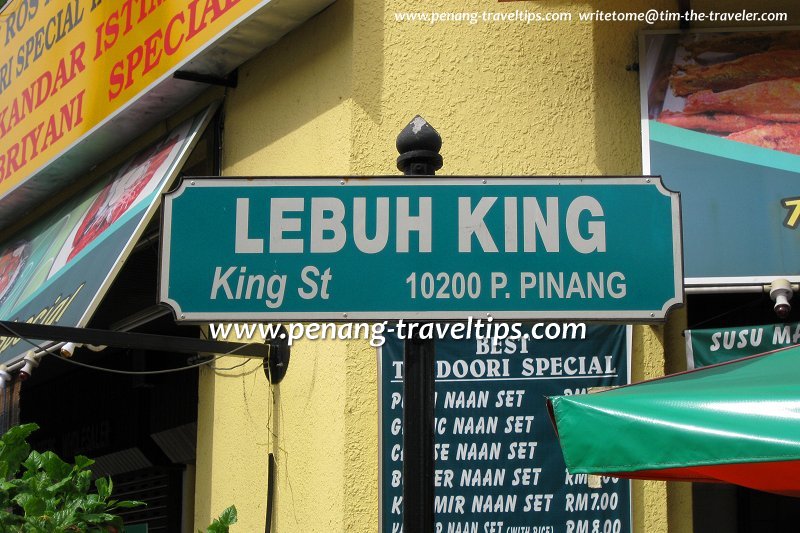 Lebuh King road sign (12 November 2008)
Lebuh King road sign (12 November 2008)
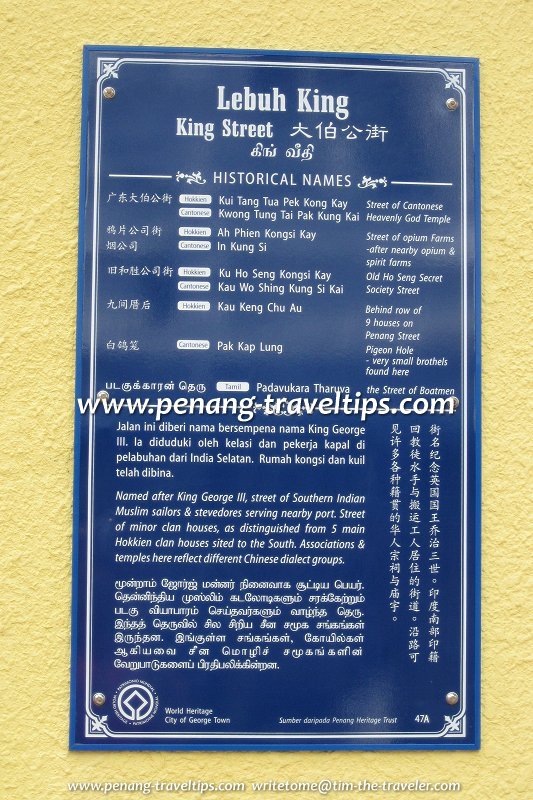
King Street history plaque (12 November 2008)

References
- Khoo Salma Nasution, The Chulia in Penang (Areca Books, 2014, p.14)
List of Streets in Penang and Streets in Malaysia

Copyright © 2003-2025 Timothy Tye. All Rights Reserved.

 Go Back
Go Back